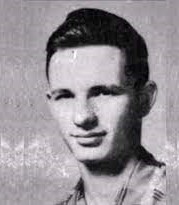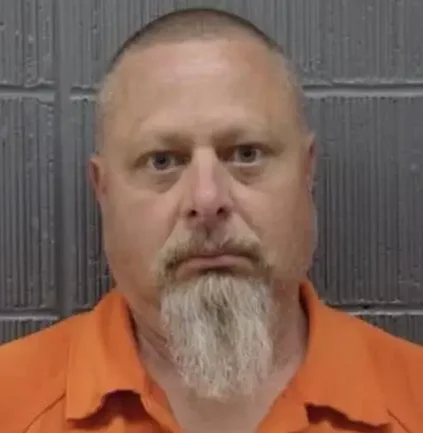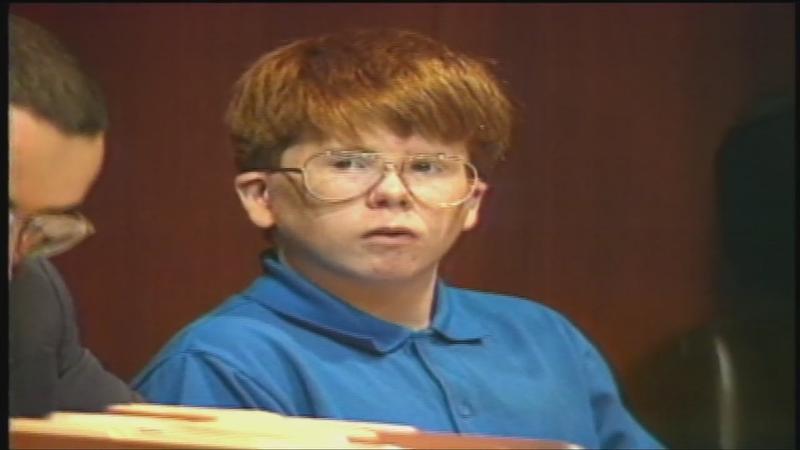
On Monday the 2nd of August 1993 in the quaint Village of Savona, New York four-year-old Derrick Robie was found brutally murdered in a small patch of woods, just half a block away from his home. Police, parents and community had been searching for him and after nearly five-hour long search, around 3 45 p.m., they found his body.
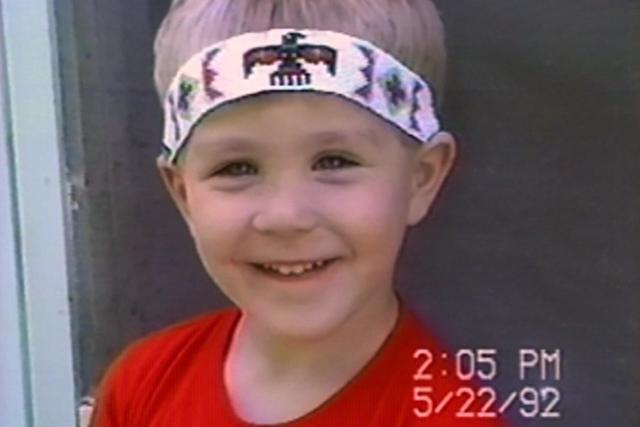
Derrick wanted to go on his own to a park. Savona was a small peaceful and close-knit village with a population of fewer than one thousand. It was pretty common for residents to know everyone in the village and it was a place where people felt safe enough to leave their doors unlocked. The journey to the park from the house was a route that Derrick had traveled often. It was only one block away and there was no need to cross any roads. His mother, Doreen, agreed to let Derrick walk the short distance to the park on his own. This was the first time she had ever let him do this. She packed his lunch and told him not to talk to anyone and to go directly to the park. At around 11:00 a.m., Derrick’s mother went to the park to pick up her son, only to find that Derrick had never arrived. Doreen immediately called the police and they quickly formed a search for missing boy. A gruesome discovery was made at a small patch of woods located halfway between his home and the park.
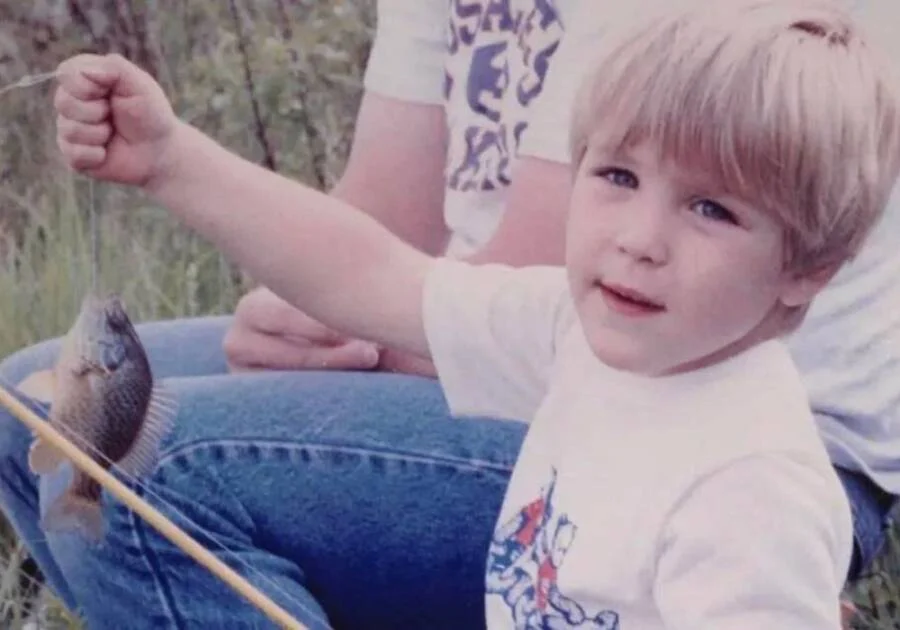
Four-year-old Derrick was strangled until he passed out, then, a large rock was dropped on his head. He was sodomized with a small stick. Kool-Aid from Robie’s lunch box was poured into Robie’s open wounds. The cause of death was determined to be blunt trauma to the head with contributing asphyxia. Based on autopsy, detectives believed that Derrick was lured into the small patch of woods and choked shortly after his arrival. They believed that he was then beaten with a large rock which they found laying close to his body. The Lunchbox, Derrick carried with him, had been emptied. The napkin inside was stuffed in his mouth. The banana was smashed next to him and it appeared Kool-Aid had been poured over his body and into his open wounds. His shorts were around his knees and a branch had been inserted four inches into his anus. The killer had then positioned the body post-mortem, taking both of his sneakers off and placing them next to Derrick’s hands. Investigators believed that Derek had been murdered minutes after he had left his home.
Derrick was described as a very friendly, adorable and outgoing young boy. He would stand on street corners and greet all the village residents of Savona as they passed. At such a young age he was already well known and loved in the village, with the residents calling him The Unofficial mayor of Savona. He loved to play sports and go fishing with his father Dale Robie. Dale coached a t-ball team at the small park, just down the road from their house and it was one of Derick’s favorite activities. Even at four years old Derek was a gifted athlete. He looked forward to attending the recreational program held daily at the local park.
The true identity of the killer would shocked the community forever.
Investigators considered both locals and any out-of-town visitors and interviewed nearly 500 witnesses. Three days into the investigation, on the 5th of August, a 13-year-old boy, Eric Smith, walked into the Village’s Police Headquarters with his mother, in the hopes of providing information helpful to the case. He had told his mother Tammy that he’d been around the park several times on the day of Derek’s murder. Despite not having seen Derrick, Eric’s mother, Tammy, felt that her son knew something and that maybe the killer had even approached and threatened Eric that morning, so she encouraged him to talk to the police. Later on investigators visited the Smith’ home to interview Eric once again and to help clarify some minor details between his statement and those of other witnesses. During that interview, much to the investigator’s surprise, Eric Smith’s story seemed to change. Eric told them that he’d ridden his bike past McCoy street that morning and had, in fact, seen Derrick Robie walking near the scene of the crime. Eric even managed to describe the clothes Derrick was wearing, as well as his lunch bag that he’d been carrying in much detail, despite earlier indicating he had not seen Derrick. Given the distance from where Eric said he was and where he claimed he saw Derrick police were surprised by the level of detail Eric could provide. They performed a vision test on Eric who did not perform well. Eric had extremely poor eyesight and usually wore very thick glasses. However, his glasses had been broken weeks prior and he was not wearing any. As the police expressed their skepticism to Eric, about him being truthful, he emotionally responded. His voice started cracking, he put his head down and he brought his fist up and his fists were vibrating a little bit and he said: “You think I killed him, don’t you?” Following this outburst, the investigators quickly denied this. Eric’s grandfather stepped in and asked that they give him a break. Police left and a while later, they returned assuring the family they were not accusing him of anything, but that he was the last known person to have seen Derrick alive and his testimony could be very helpful. They convinced the family to accompany them to McCoy street so they could reenact what Eric had seen on the 2nd of August. Investigators videotaped this reenactment and Eric was described as looking calm and seeming to enjoy the attention. He was very upbeat, very happy. He liked the fact that he was being talked to. While there he pointed to where he claimed to have seen Derrick, but when a police officer walked to the spot he pointed to, he could only make out the officer’s outline. They agreed to return the following morning, because it was growing dark. During the whole time of the investigation Eric seemed to be really interested in knowing what would happen to the person who had done this crime and kept asking his friends and family questions regarding DNA. Eric had even asked his neighbors John and Marlene Heskell, who were friends of the Smith family, what would happen if it turned out that another kid had murdered Derrick. Marlene told him: “I seriously think they would need some psychiatric help.”
Gradually details began to leak out about the crime and Marlene’s friends called her with a new theory about the murder. Her friend had said that they thought it was a child, because whoever killed Derrick had squashed the banana. An adult would have just discarded the banana, they wouldn’t have squashed it and made a mess. Following her friend’s Theory Marlene Heskell then went to launch her own investigation. She said: ”I went up to the store and I bought ice cream, nuts, syrup and bananas, and I brought it home and asked everyone if they wanted a dessert. Everyone wanted one, but one person asked for it without bananas. Eric Smith had said ‘no I don’t like bananas’.”
Five days after his murder little Derrick Robie was laid to rest in his baseball uniform. Two days later Eric Smith confessed to his murder. Members of the Smith family had felt Eric had not been himself recently and they were worried that he was hiding something and that he was afraid to come forward about it. They didn’t even think for a second that he had done it, but that someone had threatened him. But when confronted by his mother and grandfather, Eric broke down in tears and confessed to the brutal crime. Shockingly he had told his mother: “I’m sorry, mom, I’m sorry. I killed a little boy.” His grandfather asked him why and he said: “I only saw this blonde kid and I wanted to hurt him.”
Still hard to believe, but they then brought him to the police headquarters where Eric told them everything. The police investigators informed Eric of his rights in the presence of his family. Eric had asked them for an attorney, but he and his family waived the rights for counsel, which would be a point of contention later on, when they would try to have Eric’s police statement revoked, by saying Eric had not been properly instructed on his rights. Investigators spent three hours interviewing Eric. The last time for His official statement, the Smith family wanted him to have psychiatric help and didn’t feel prison would suit him, District Attorney John Turney and all of the present investigators agreed that Eric needed psychiatric help, but they still planned to prosecute him for the murder of Derrick Robie.

Eric Smith was born on the 22nd of January 1980 and was raised in Savona with his mother Tammy Smith and stepfather Ted Smith. He had two siblings. One older sister who had moved out of the house and one younger sister life was not easy. Eric had had a difficult childhood. He was a small kid with bright red hair, thick glasses, a speech impediment and some physical anomalies, so he was bullied. As a result, he was said to have extremely low self-esteem. Eric’s mother, Tammy, was an epileptic and while she had been pregnant with Eric she had taken an anti-convulsive drug called ‘trimethadione’, to stop having seizures. This medication was later shown to cause birth defects, including low set ears that curl downwards, as well as speech problems and slow mental and physical development in children. Eric was born with these physical characteristics which were typical of a child suffering with ‘fetal trimethadione syndrome’. It is by far and away the most toxic drug for a pregnant woman. It can cause major congenital malformations, according to doctors. There are a variety of minor anomalies and then there are neurologic problems like learning disorders that can range in severity. Eric did not learn to walk and talk until age two. Growing up Eric had exhibited signs of emotional disturbance and sadism. There was a significant amount of both verbal and physical violence in his home. It was also said that Eric’s sister Stacy had left home to live with her father, after her stepfather had sexually molested her twice, when she was just 11 and 14 years old. Acts that Eric was aware of. Eric had tortured animals when he was younger, and had supposedly killed his neighbor’s cat. When Eric was about nine he used a clamp from a vacuum cleaner to slowly strangle the cat to death. At the age of 13 he was only performing at an academic level of an eight-year-old and he was put in classes with his little sister. Eric’s childhood was extremely lonely and withdrawn and he had no friends. He would often have temper tantrums where he would bang his head against things and hold his breath.
Allegedly, Eric Smith was forced to attend the summer recreational program by his mother. She had a doctor’s appointment that day and even though he wanted to go with her, she told him to go to the program alone. Instead Eric rode around on his bike for a while, eventually making it to the park where he discovered the program hadn’t started yet. Other conflicting sources had even said that Eric had been kicked out of the program due to his bad behavior. Then a group of people at the Pavilion shouted at him so he rode off angry. He then encountered Derrick Robie walking towards the park with his lunch bag in hand. Eric called out saying: “Hey, kid! When Derrick looked at him, Eric knew instantly that he wanted to hurt Derrick. Later he would tell psychiatrists: “He’s smaller and practically helpless. I had to get my anger out on him. I wanted to hurt him.” He asked Derrick if he wanted to take a shortcut to the park. At first Derrick said he wasn’t supposed to, so Eric replied: “It’s okay, I’m right here, before getting off his bike and leading Derrick to a wooded area. Eric let Derrick walk into the woods first. He followed behind him and then used his right arm to choke Derrick, dropped his lunch bag and began punching and kicking. Derrick tried to free himself from Eric’s grip and Eric nearly let go. He had to readjust his grip but when he felt Derek gasping for air, he squeezed harder. Shortly after Eric believed Derek to be dead, as he no longer heard any noise. He laid Derek back down on the grass before Derrick let out a loud gasp, fighting to stay alive. Eric reached for Derek’s lunch bag and emptied its contents, before finding a napkin and shoving it into Derek’s mouth. He attempted to do the same with a plastic sandwich bag, but Derrick bit his finger in defense. He then picked up a small rock and hit Derek on the right side of his head three times. Eric dug up a larger rock, using both hands to lift it. He continued to assault Derrick, hitting him continually in the head and three times in the chest with a different larger rock. He found the Kool-aid from Derek’s lunch and poured it on his head. Then he pulled down Derrick’s shorts and inserted a stick into his anus.
Later in life Eric would say he didn’t use a stick with the intent of sexually abusing Derrick, but part of him thought he would be able to stab his heart, to make sure Derrick was dead. When Eric finished the violent attack he moved Derrick’s body further into the woods near a pile of rocks. Then rode away on his bike. He returned to the scene five minutes later to make sure the body was still there. He told police: “I was worried if he wasn’t there he might say something. However, I figured if he’s dead and I believed he was, I won’t have to worry about anything.”
The murder case made national headlines in the United States.
The trial began in July 1994 and Eric Smith was in trial for murder. Smith was tried as an adult, making him the youngest murder defendant tried as an adult in New York state history. He was subjected to extensive medical testing from specialists on both sides.
During the trial the defense team tried to convince the jury that Eric suffered from severe psychiatric issues making him unable to control himself and they suggested he’d be better suited for a psychiatric hospital. Defense psychologist evaluated Eric and said he had intermittent explosive disorder or uncontrollable rage. People who suffer from this disorder will feel so angry or upset that they feel like they’re on the verge of exploding. They return to normal quickly after an explosive outburst. For the defense this justified why Eric so quickly decided to attack Derek without any premeditation and that he acted in a state of extreme emotional disturbance.
The prosecution also had Eric evaluated as they too tried to understand the reasons behind committing such a brutal murder at such a young age. But their expert found nothing so they concluded that he didn’t have any form of mental illness. Instead they diagnosed him with ADHD. The prosecution’s psychiatrist even explained that intermittent explosive disorder is extremely rare and even more, rarely seen at that age. There was a sexual nature of the crime.
The defense looked into the family history to determine if there was a pattern of abuse. Ted Smith later admitted to molesting his stepdaughter, but denied ever sexually abusing Eric. Eric said that he was physically and psychologically abused by his stepfather, but never sexually. One of the reasons they wanted to illustrate how Eric’s home life was because intermittent explosive disorder can be caused by trauma. If they could prove he was abused, it would help lead the jury to understand that he could not control his actions. Eric never took the stand but his team explained that he had been bullied relentlessly at school because of his bright red hair, freckles, glasses and low-hanging ears on top of that. At home his stepfather was known to be aggressive with him. Neighbor had witnessed Ted Smith aggressively kicking Eric in their yard and there were several accounts of him being verbally abusive to Eric. Defense finally argued that Eric’s mother had been taking powerful anti-convulsive medication during her pregnancy.
On the 16th of August, after 11 hours of deliberation the jury rejected the insanity and the extreme emotional disturbance defense they determined that he was aware of his actions and knew that what he was doing was wrong but concluded it was not premeditated in any way. It was clear that Derrick was murdered in a frenzied attack of opportunity and they convicted Eric of second-degree murder which is murder committed with malicious, intent but not premeditated. The jury’s decision was unanimous. Eric Smith was convicted of second-degree murder. On November 7, 1994, he was sentenced to the maximum term then available for juvenile murderers: a minimum of nine years to life in prison. While in jail, Smith read out an apology letter to Robie’s family on public television.
Eric Smith began his sentence in the Juvenile System since he was only 14. At 21 he was transferred to Woodburn Correctional Facility in New York state where he would spend the rest of his time incarcerated. New York state law allows inmates illegible for parole to have hearings every two years, His first parole hearing was in 2002 the Robies were not allowed to attend the parole hearing, but they were allowed to voice their opinion on the potential release of their son’s killer. They sent in-home videos to the parole board, alongside heartfelt letters.

Eric spoke out about his experience in 2004. 24-year-old told 48 hours that he had killed Derrick Robie after years of being relentlessly bullied by other kids. In 2004 Parole Board hearing, he admitted that he had got a good feeling from strangling Derrick at the time, because: “Instead of me being hurt, I was hurting somebody else.” He also admitted if he hadn’t been charged back in 1993 that he probably would have killed again.
A few years later Eric said he hoped to become a counselor, so he could help other kids who were bullied like he was: “My anger wasn’t directed at Derrick at all. It was directed at all the other guys who used to pick on me and that was what I saw in my head. I’m not the same person. Not a day goes by, in some way, shape or form, but I’m like forced to remember what I did. I’m automatically thinking I killed and the pain that I caused stay.” Eric said that after years of therapy he was a changed man. “You can label me as a monster, a cold-blooded killer, a demon child, Satan incarnates doesn’t mean that’s who I am.” He also believed he would be released one day and said: “I want to, you know, get married and raise a family, hold down a job, pursue the American dream.”
Eric’s parole would continue to be denied throughout the years, until his 11th Parole in October 2021, when he was granted parole. During the parole hearings the board asked him questions about how he felt while committing the crime and how he had since changed. In the transcripts he told them that during the murder he didn’t see Derrick, he saw the faces of all the people who had hurt him, including the bullies and his stepfather, and that he was taking his anger out on them. He expressed how deeply sorry he was for the crime and he apologized to the Roby family for the pain he had caused them. Eric Smith put forward a lot of effort with the parole boards to convince them he had been rehabilitated. He earned certificates to be a carpenter, an electrician and was working towards an associate’s degree during his last parole hearing. He also told the boards that he was engaged and looked forward to a time where he could live with his wife and starts his own family. In his final hearing he had said: “I ask that you’d take into consideration that the 13-year-old kid that took Derrick Robie’s life and had so many things going on with him internally at the time, is not the man sitting in front of you today. I still have some skills to learn through communication but I have come a long way and I am still going to grow. I’m still going to learn. But I assure you if you were to give me the chance, I would not only prove that I am not a threat, I would definitely be an asset to society.”
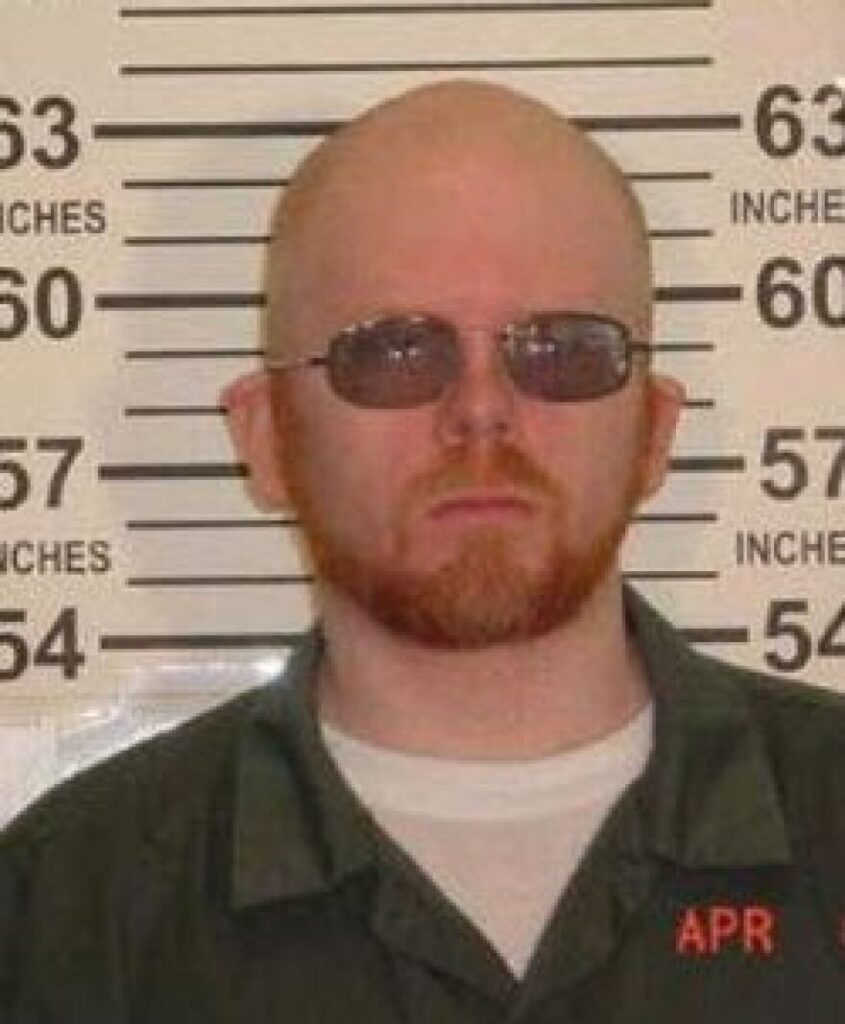
Eric Smith was granted parole under the condition that they find a suitable place for him to stay. At first he planned to move back to Savona with his mother and begin working there, but the parole board thought that would be a bad idea to move back, as the small town was still grieving the tragedy. At the age of 42, after having spent almost 28 years in prison, Eric Smith was released on February the 1st 2022, moving to his new home in Queens.
Dale and Doreen Robie have been working with the state legislators to change the law from allowing parole every two years to every five.
Derick’s family continue to remember Derrick and celebrate his life, but also the whole community of Savona in 1994. The patch of woods where Derrick is a Memorial Baseball Field. There is a statue of Derrick in his baseball uniform, getting ready to swing his bat. it’s just a testament of the hearts of the people in this town and surrounding communities.
They just hope this won’t be a decision the parole board will regret.
This leaves us only with hope, because whatever the cause or the etiology was, he exhibited everything that we see in serial murderers or sadistic murderer. Even a conduct disorder such as fit of rage, aggression, disruption… His story evolved in front of parole board. Did animals he tortured represent his bullies? He started puberty and, as he stated, “that blonde boy” was perfect opportunity to gain full control and dominance and to enjoy inflicting the pain. He was jealous most likely. People with these conditions decide to break the law. They go to prison and not hospital, because it is their decision.
